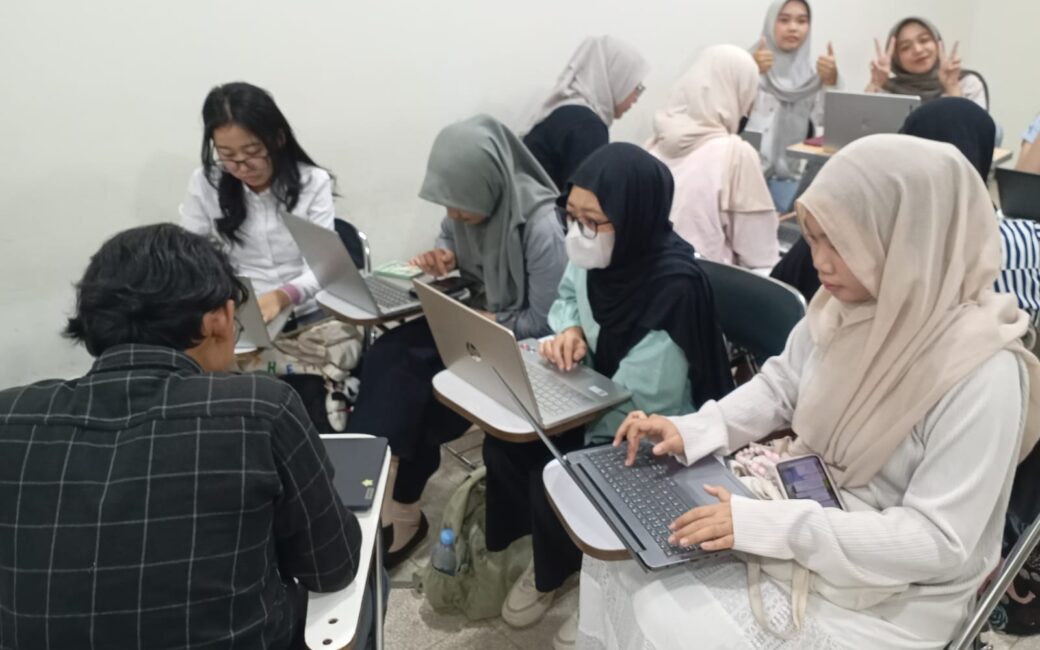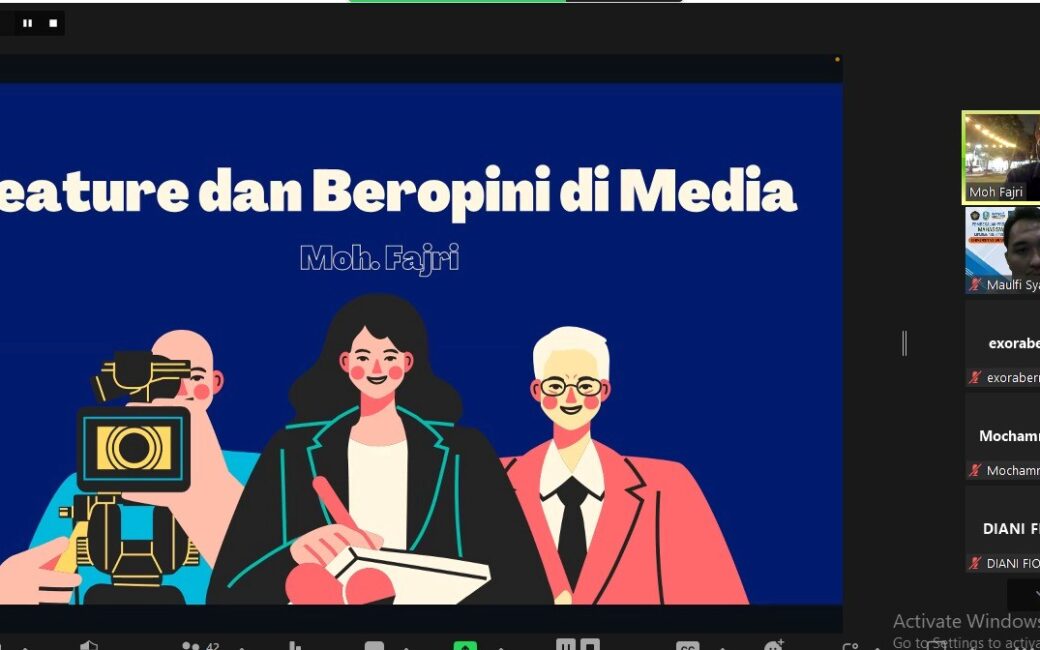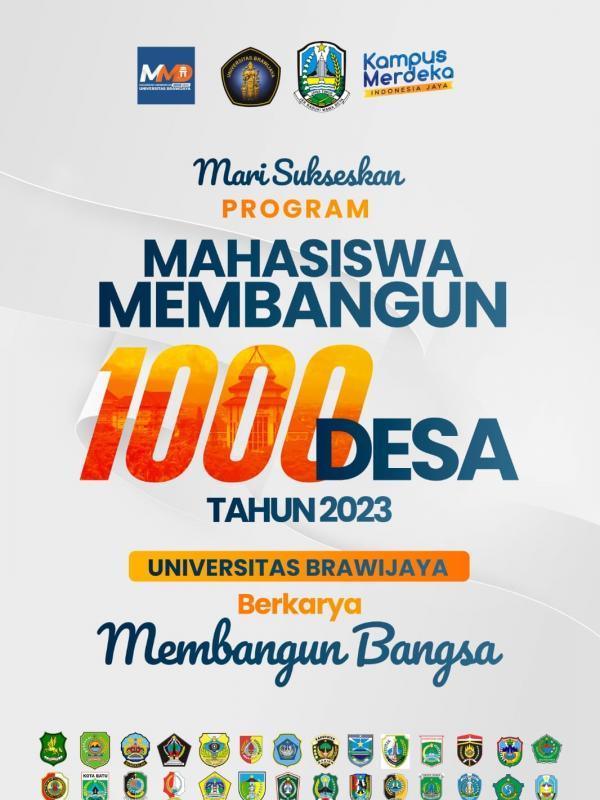Teaching Campus is one of the Merdeka Learning Campus Merdeka (MBKM) programs which opens opportunities for students to study outside the classroom. The Teaching Campus trains student skills so that students have several skills and abilities in becoming partners with teachers and schools. The role of students is needed in developing learning models and fostering creativity and innovation in learning. Student contributions are expected to strengthen students’ literacy and numeracy abilities. Bearing in mind, literacy and numeracy problems in Indonesia are ranked at the bottom. Therefore, educational development innovations are needed that involve students directly in order to improve the quality of literacy and numeracy. The Teaching Campus Program can be a place for students to implement their expertise and knowledge in contributing to helping basic education units. The Teaching Campus Program can be attended by students from all tertiary institutions under the auspices of the Ministry of Culture, Research and Technology. Students will be placed in program target schools throughout Indonesia as an effort to help increase literacy and numeracy at the basic education level. Students who pass the selection will be assigned in all regions of Indonesia according to the applicant’s domicile area on the MBKM page.
The Teaching Campus Program has several benefits for fellow students, one of which is to provide opportunities for students to contribute as agents of change in Indonesian education. Then, students can also become partners with teachers to develop innovations in learning including developing literacy and numeracy learning, making learning more creative and innovative, and aligning learning developments with technology. Students will later hone their skills, abilities, expertise and social empathy (critical thinking, problem solving, group management, leadership, creativity, and communication). Reporting from the Kemendikbud.go.id website explained that the Teaching Campus program will provide 20 credit conversions, monthly living expenses assistance, and UKT funding assistance to students.
The Teaching Campus Program can be attended by all students with the condition that students are from all over Indonesia, active students of Bachelor/D4/D3 study programs accredited at State Universities (PTN) and Private Universities (PTS) under the auspices of the Ministry of Education and Culture, students are in at least one semester 4 (four) at the time of program registration, have a minimum Grade Point Average (GPA) of 3.00, have never been designated as participants in the previous batch of Teaching Campus programs, student data is registered at PDDikti and has a match between names on PDDikti and names on KTP. Then, there are several documents that must be completed by students, including a letter of integrity pact, transcript with a minimum GPA of 3.00, letter of recommendation, letter of parental consent, health certificate, certificate of organizational experience (optional). After that there will be selections, such as filing selection, numeracy literacy tests, and others.
Several students from the Indonesian Language and Literature Education study program had the opportunity to take part in the Teaching Campus MBKM Program, namely Asri Kamila Ramadhani and Ivan Listyawan. Asri Kamila Ramadhani explained her motivation in participating in the Teaching Campus, namely wanting to gain experience in participating in the MBKM program and utilizing the Teaching Campus program as a place to teach children. He stated that the role of the Teaching Campus was very important because it helped him deal with problems related to learning programs. He stated that many teachers needed help from students, especially in adapting technology to the education system. He was assigned to one of the basic education units in Klaten. Then, one of the benefits gained is that he becomes more understanding and aware that the world of education is still not evenly distributed and there is still much that needs to be fixed. In addition, the Teaching campus program makes him get out of his comfort zone by learning problem solving together in a team.
Asri Kamila Ramadhani is very happy to be able to take part in the Teaching Campus program because behind her experience in teaching, she also has the opportunity to learn. Learn from the surrounding environment, learn to understand children, and learn to manage feelings and self when dealing with children. He realized that teaching is a calling. He is happy to be able to help children and see the enthusiasm of children in learning. For him meeting with children is the best medicine. He also explained that the Indonesian Language and Literature Education study program was very supportive in assisting the student orientation process starting from the registration process, the process of completing files, to the process of converting grades.
Asri Kamila Ramadhani expressed her gratitude for receiving full support and assistance from the Indonesian Language and Literature Education Study Program.
Ivan Listyawan also took part in the Teaching Campus program. He wants to gain teaching experience as he is in the education department. He was placed in a junior high school in Karanganyar Regency. He is motivated to make an impact on improving the learning system, especially in the areas of literacy, numeracy and technology adaptation. He was grateful for the warm welcome from the principal, teachers and students at the school. The Teaching Campus Program makes him learn to deal with student problems, especially problems regarding student discipline. Through the teaching campus program, he gained new friends and experience working in a team. Then, he also got a lot of hands-on experience from the teachers at the school. Ivan Listyawan also feels happy to be able to get to know students more closely to help schools improve their quality and quality. He also advised that the Teaching Campus activities could be maximized for students to develop their potential and contribute to the school.
Mr. Maulfi Syaiful Rizal, M.Pd. as Head of the Student Development Institute and Lecturer in Indonesian Language and Literature Education stated that the Teaching Campus Program is very beneficial for students, especially for students majoring in education. This is because students will undergo programs planned to help with problems at the school for one semester. Students can be directly involved in helping the development of education in Indonesia, for example developing learning appropriate to children’s emotional, language and cognitive development. Students will also gain experience in dealing with problems in the world of learning so that later they can learn from these experiences. Then, the Teaching Campus Program can improve the soft skills of students. Therefore, Mr. Maulfi Syaiful Rizal hopes that the Teaching Campus program can be used by students as a forum for student self-development. What’s more, the study program really supports MBKM activities for students so that later students can gain experience, expand their network of relationships, and improve their soft skills. He hopes that students of the Indonesian Language and Literature Education study program can contribute actively to the MBKM program because the study program always helps, facilitates, accompanies, and prepares conversion courses. So, being students of the Indonesian Language and Literature Education study program, you don’t need to worry anymore because the study program is ready to assist students in the process and contribute to the country through the Teaching Campus Program.













